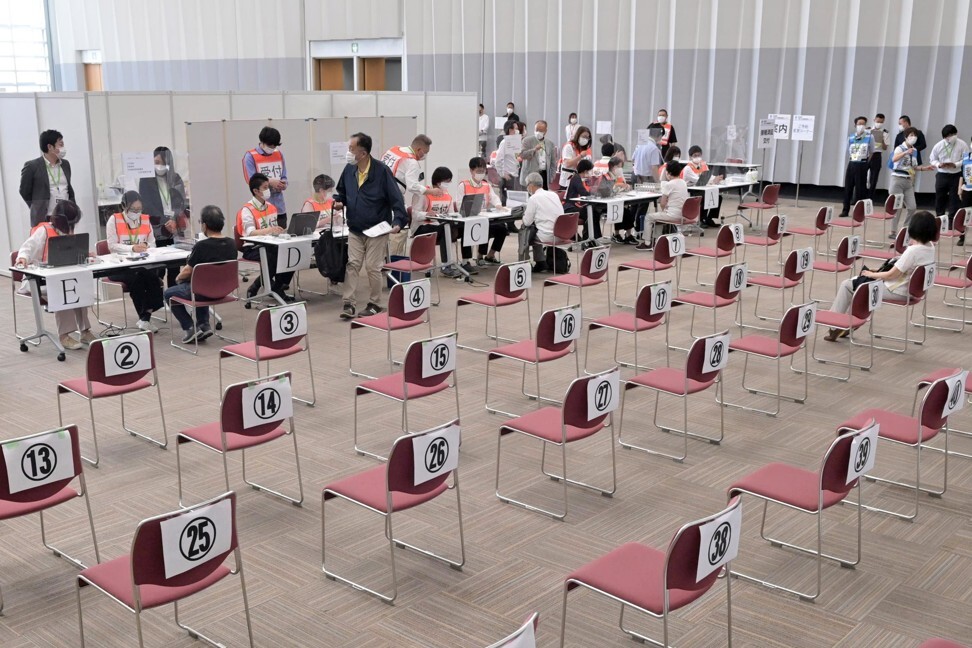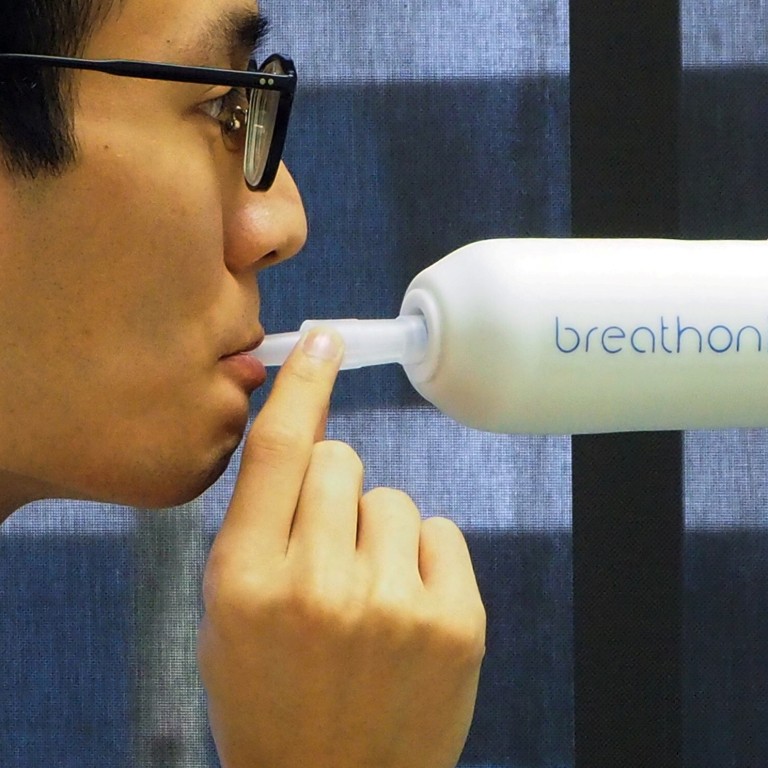
Coronavirus: Singapore approves 60-second breath test; Nepal says Mount Everest climbers to proceed amid pandemic
- Breathonix, a spin-off company from the National University of Singapore, is now working with the health ministry to run a deployment trial
- Elsewhere, Japan on Monday opened its first mass vaccination centres, while Nepal says foreign climbers will continue trying to summit Everest despite reports of virus cases at the base camp
Breathonix, a spin-off company from the National University of Singapore, said it is now working with the health ministry to run a deployment trial of the technology at one of the city state’s border points with Malaysia.
The breath analysis will be carried out alongside the current compulsory Covid-19 antigen rapid test.
How a Covid-19 variant put Singapore back in defensive mode
The breath test achieved more than 90 per cent accuracy in a Singapore-based pilot clinical trial, the company said last year.
The system uses disposable mouthpieces and is designed to ensure there is no cross-contamination. After blowing into the device, the technology assesses the chemical compounds of the breath to determine whether a person is infected.
India blasts New Delhi chief minister for false ‘Singapore variant’ claim
Any individual screened as positive will need to undergo a confirmatory polymerase chain reaction Covid-19 swab test, the company said.
Breathonix said it is in discussion with several local and overseas organisations to use the system, citing strong commercial interest. Other countries, including Indonesia and the Netherlands, have rolled out similar breath tests.
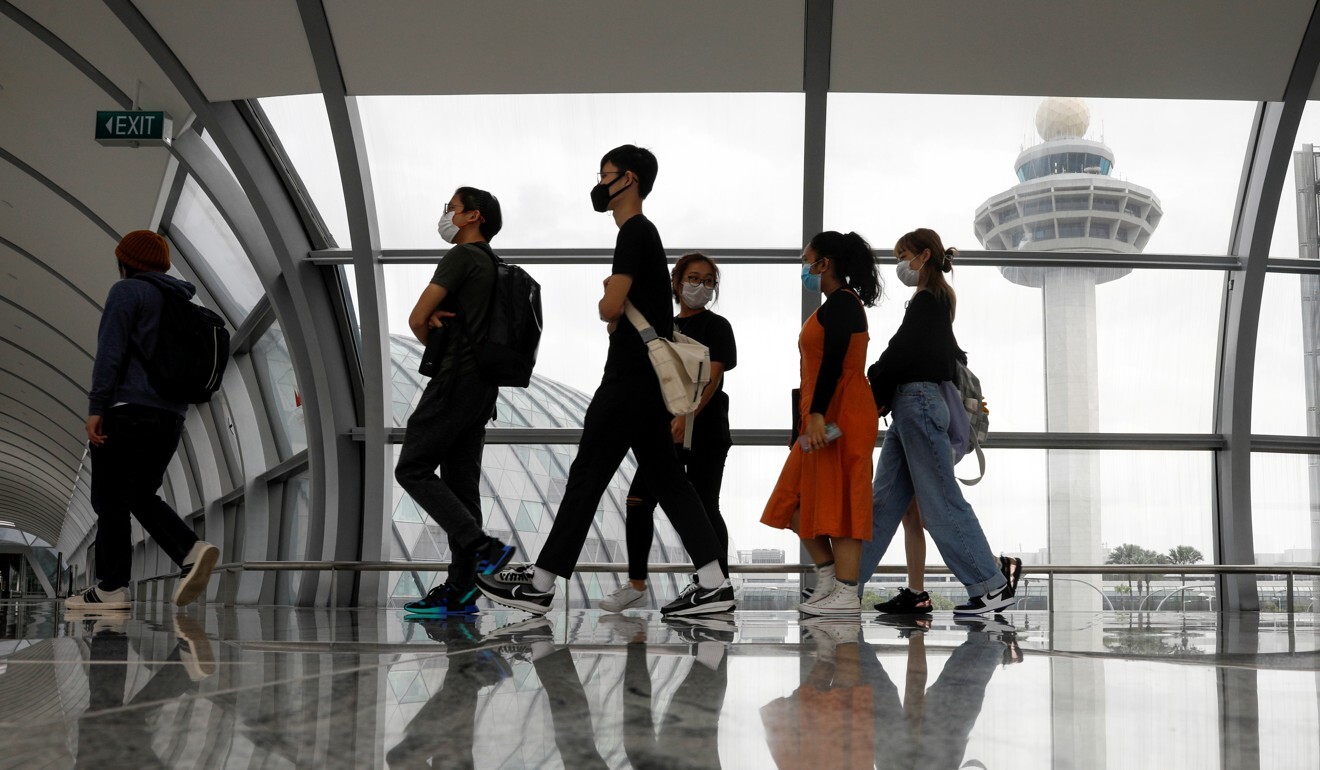
Meanwhile, Singapore’s airport on Monday said it was stepping up measures to keep out the coronavirus, including further segregating arrivals and about 14,000 workers into different risk zones.
Passengers from very high-risk countries will be escorted through immigration to their quarantine facilities without going through the other terminals, it said.
The airport outbreak is part of a resurgence of infections in Singapore, which reported 24 local cases on Monday, that follows months of reporting few or no local cases each day.
Nepal says Everest climbing continues despite reports of outbreak
A Nepali government official on Monday said many foreign climbers were continuing their attempts to summit Mount Everest despite reports of a Covid-19 outbreak at the base camp of the world’s tallest peak.
In April, a Norwegian climber was evacuated from the base camp of the 8,848-metre mountain and flown to Kathmandu where he tested positive for Covid-19. He has since returned home.
Lukas Furtenbach of the Austrian Furtenbach Adventures firm, evacuated his team from the mountain this month saying there was a sharp rise in virus cases at the base camp.
Climbing guide says at least 100 people infected with coronavirus on Mount Everest
“So far we have about one hundred confirmed cases in Everest base camp, confirmed by doctors, by hospitals, by insurance companies, by expedition leaders, by helicopter pilots who are flying out the patients and of course by the climbers themselves,” Furtenbach told Reuters TV in Kathmandu on Monday.
But Mira Acharya, a director at the Department of Tourism that oversees climbing activities in Nepal’s mountains, said the government had not received any notice of an outbreak at the Everest base camp and that expeditions were continuing through the climbing season that ends next week.
When asked about the one hundred cases mentioned by Furtenbach, she said: “We have not received any report about that.”
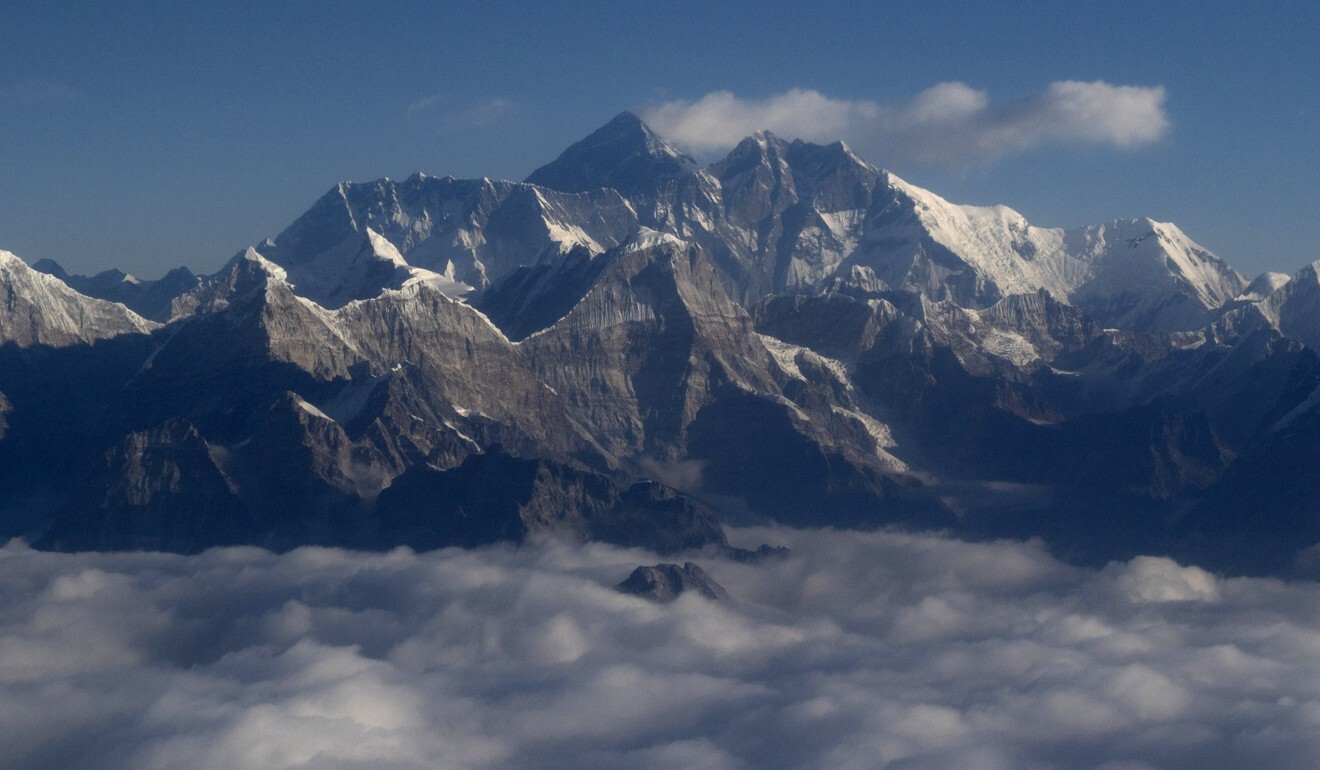
“Even some climbers whose teams had stopped climbing are continuing their expeditions,” she told Reuters without giving any names.
“There is no panic among the climbers there,” said Acharya, who visited base camp this month. “If there were a few cases they were managed in time and well.”
On Sunday, about 180 foreign climbers and their Sherpa guides reached the peak and more are expected to go up this week, she said.
Nepal has reported more than 513,200 infections and 6,346 deaths since the outbreak began, according to government data.
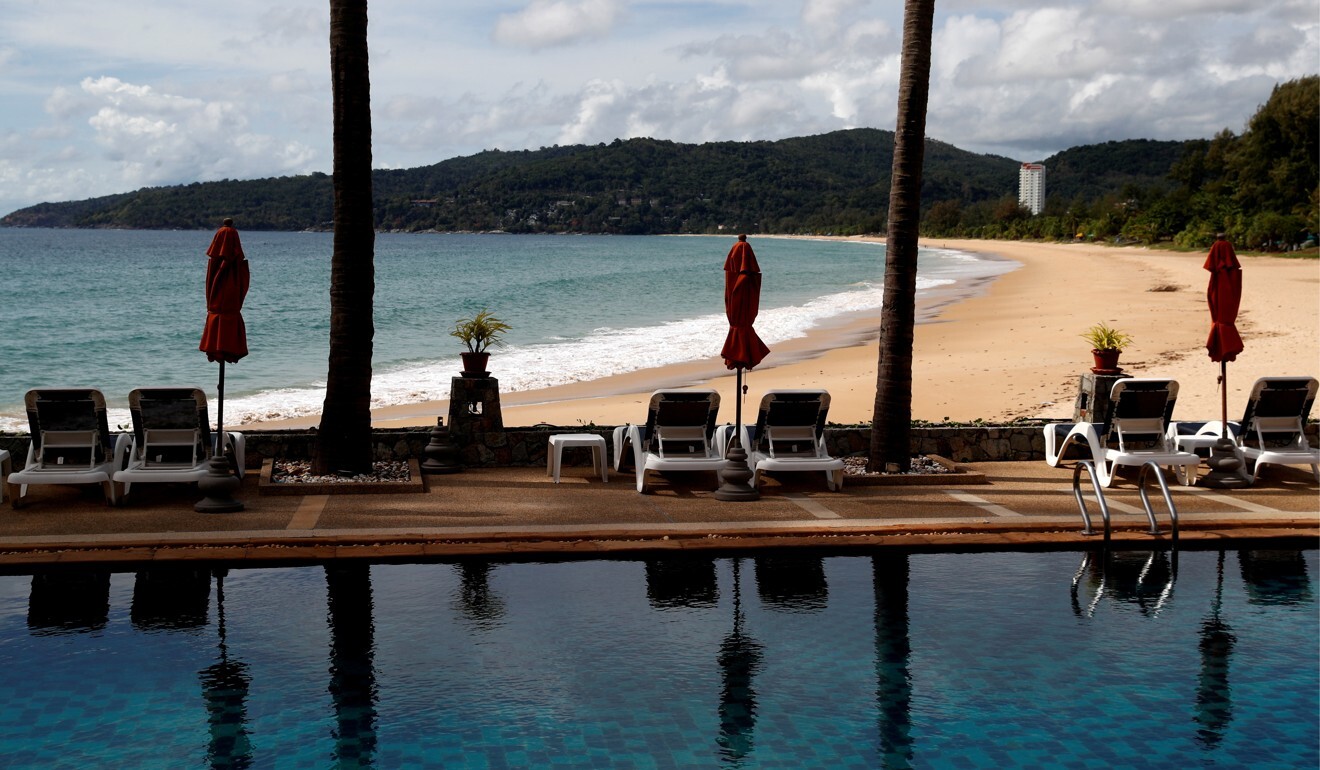
Thailand says its tourism sector may not recover until 2026
It could take another five years before tourism revives fully in Thailand – an ominous sign for one of the most tourism-dependent economies in the world.
The delayed return – which some analysts had expected within two years – will impact more than 7 million workers, some of whom may need to find jobs in other fields, the council said.
Bargain hunters and Chinese buyers eye Phuket as it gears up to reopen
Thailand welcomed nearly 40 million visitors in 2019 – the last year before the pandemic – earning US$60 billion in revenue. It closed its borders to most foreign visitors in March 2020.
The Southeast Asian nation is trying to gradually reopen some destinations to vaccinated visitors with the economy struggling to gain traction.
The resort island of Phuket is set to be the first to reopen in July, followed by 10 other destinations in October. But the government only expects 500,000 visitors this year, a small fraction of the 6.7 million who came in 2020 – almost all in the first three months of the year.
Japan opens mass vaccination centres
The two military-run centres in Tokyo and Osaka will administer thousands of shots daily, initially to elderly residents of the cities, as the country battles a fourth wave of virus cases.
Just 2 per cent of Japan’s population of 125 million are fully vaccinated so far – compared to about 40 per cent in the US and 15 per cent in France.
SoftBank CEO warns Japan has ‘a lot to lose’ by proceeding with Tokyo Olympics
Criticism has been mounting over the relatively slow roll-out, hindered by strict medical rules and complex bureaucracy, but the first people to get a jab at the Tokyo centre said they were excited to move on with their lives.
“It’s wonderful. I can rest easy now,” said Hideo Ishikawa, 73. “For a long time, a year and a half, I was feeling rather anxious and tense.”
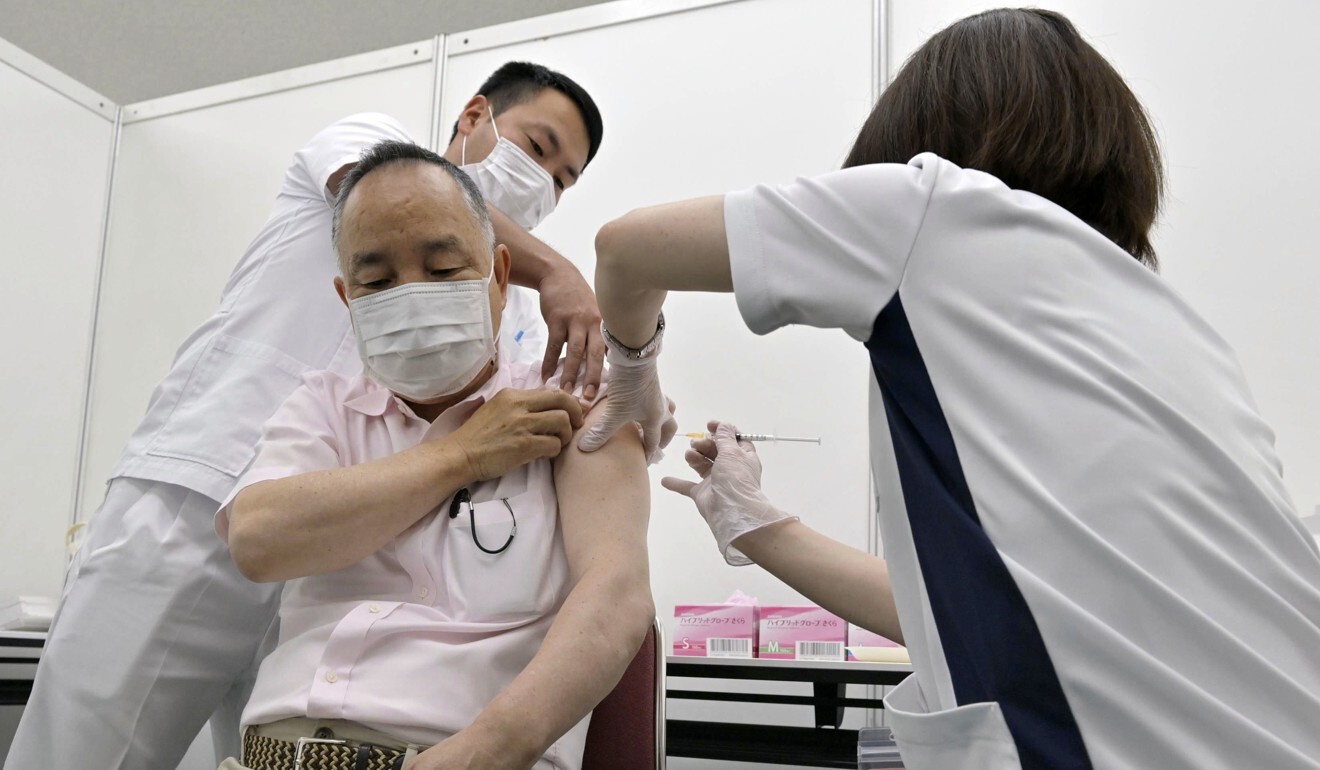
Munemitsu Watanabe, a 71-year-old engineering lecturer, also expressed relief but said the roll-out could have been quicker.
“Had they done it earlier and had 80 or 90 per cent of people injected by the time of the Olympics, then the Games could be held more smoothly,” he said.
The Tokyo centre aims to deliver up to 10,000 jabs a day, while the Osaka centre will give up to 5,000.
Both are using the two-shot Moderna vaccine, which was approved for use in Japan on Friday along with the AstraZeneca formula. But the AstraZeneca vaccine will not be used immediately due to concern over very rare blood clots.
Ministers insist the Games do not figure on their roll-out schedule, and no date has been announced for other age groups.
Japan has endured a relatively small coronavirus outbreak, with about 12,000 deaths overall, but a recent surge in infections has put hospitals under strain.
Tokyo, Osaka and eight other regions are under a virus state of emergency curbing commercial activities until the end of May, with reports saying the measures could be extended for another three weeks.
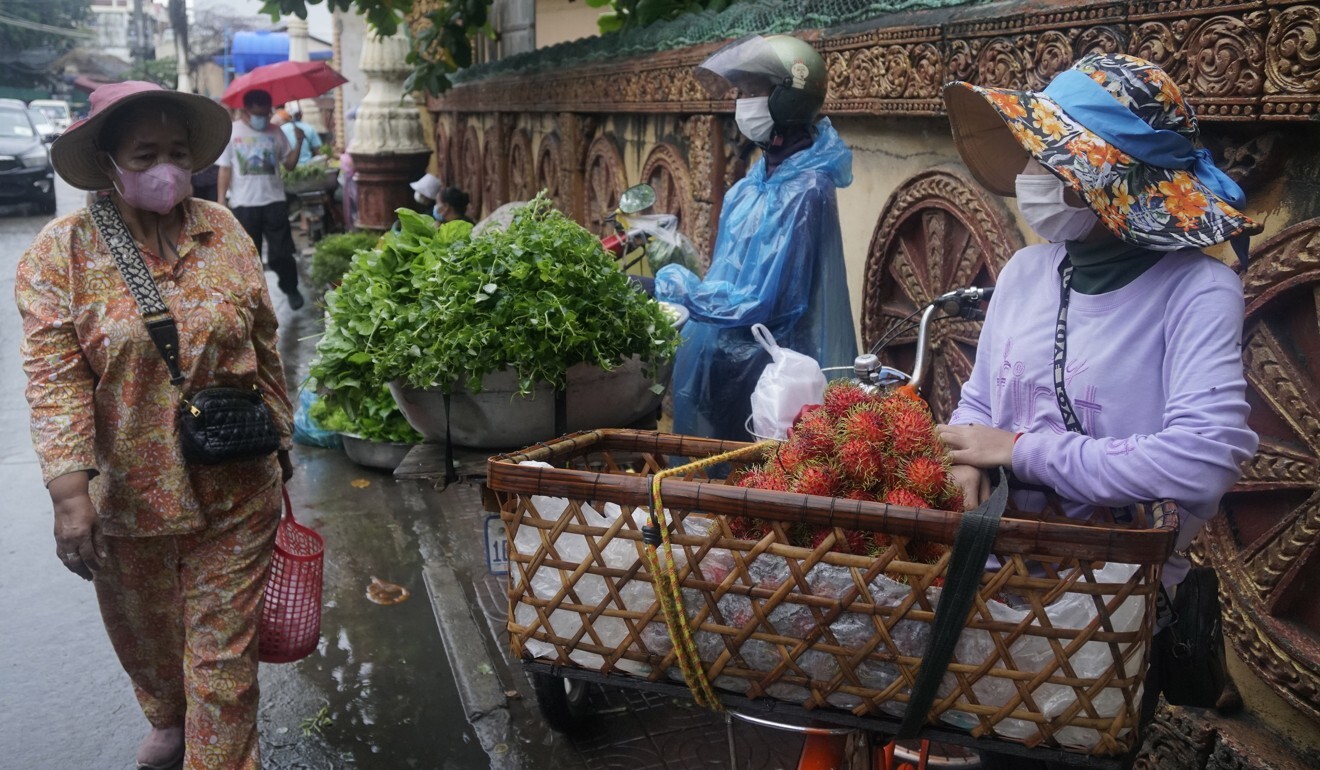
Cambodia battles prison outbreak
Cambodian authorities further eased restrictions over the weekend but a Covid-19 outbreak at the country’s most overcrowded prison provided cause for concern.
The Ministry of Health on Monday reported 556 new cases, after an 8pm curfew in place since April was lifted by authorities in Phnom Penh. They also lifted a ban on alcohol sales.
The city’s governor Khuong Sreng warned restrictions would be reimposed if case numbers spiked, or if people began flouting public health orders like those requiring masks to be worn, the Khmer Times reported on Monday.
How Covid-19 helped China boost its soft power in Southeast Asia
Local outlet Voice of Democracy reported on Friday that at least 18 inmates at Phnom Penh’s Prey Sar Correctional Centre 1, the city’s main prison, had tested positive for Covid-19.
The facility holds 10,000 prisoners, making it about 500 per cent over capacity, according to Amnesty International. A prison spokesman told the Khmer Times that prisoners would be isolated for two weeks with no visits allowed. Officials and staff will also be unable to leave.
Authorities are also scrambling to contain an outbreak in Preah Sihanouk prison, on Cambodia’s coast, where hundreds have tested positive, according to Human Rights Watch.
New community transmissions in Australia
Australia’s state of Victoria on Monday said it was investigating two suspected positive Covid-19 cases in Melbourne, which if confirmed would be the first community transmissions in the state in nearly three months.
Victoria was the worst hit Australian state during a second wave of Covid-19 late last year, accounting for about 70 per cent of total cases and 90 per cent of deaths. The state controlled the outbreak after one of the world’s longest and strictest lockdowns.
Australia has avoided the high Covid-19 numbers seen in many developed countries by closing its international borders in the early stages of the pandemic, lockdowns and social restrictions. It has reported just over 30,000 cases and 910 deaths.
Vaccine hesitancy puts Asia’s ‘zero-Covid’ economies like Hong Kong, Australia in herd immunity stalemate
The report of the new likely infections come as the federal government considers a plan that would allow fully vaccinated residents to travel freely between the states if regional borders have to be closed during future Covid-19 outbreaks.
During past outbreaks states have imposed internal border closures and mandated 14-day quarantine for visitors.
“As the vaccine roll-out progresses, we can give greater certainty to Australians in terms of what being vaccinated delivers for them by way of benefits across the country,” Finance Minister Simon Birmingham told ABC Radio on Monday.
Reporting by Reuters, Agence France-Presse, dpa, Bloomberg

